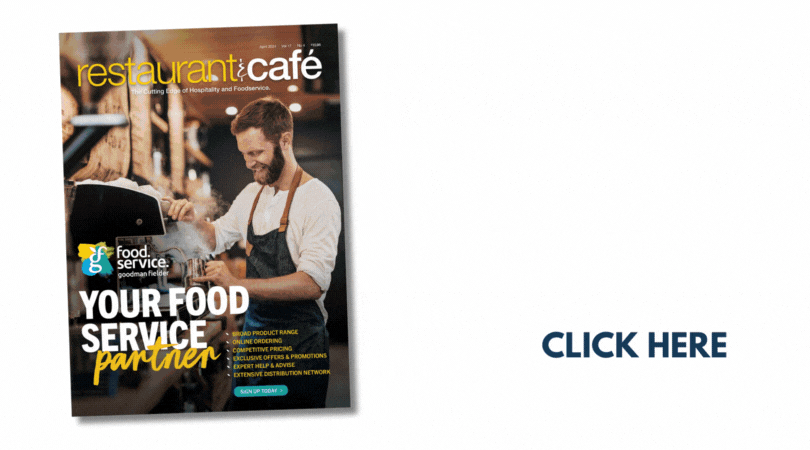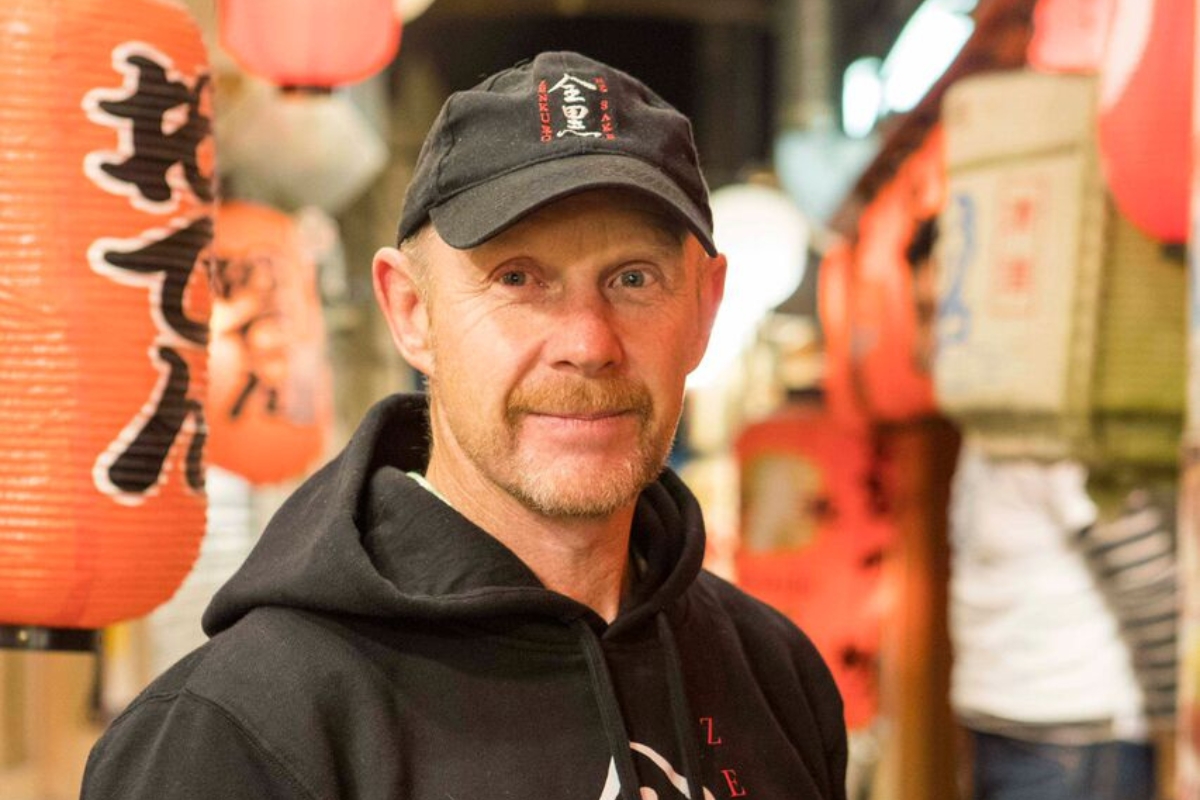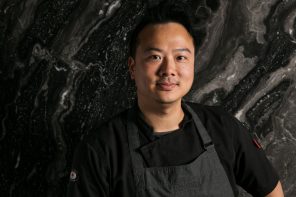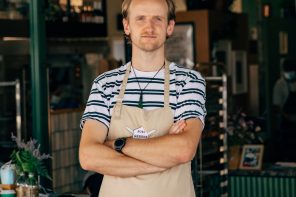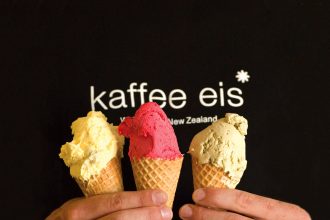David Joll, the head brewer and director of Zenkuro Sake, grew up in Whanganui during the 60s and 70s as a typical Kiwi boy of the day, focused on sports such as rugby, gymnastics, cricket, golf and athletics and outdoor activities like fishing.
Joll’s life course changed in his last year of high school when he secured a scholarship to spend a year at high school in Japan. He loved the experience, and it inspired him to major in Japanese at Auckland University, leading to post-graduate studies at two Japanese universities and 15 years of living in and enjoying Japan.
During his time in Japan, Joll developed an interest in Japanese craft culture and an appreciation for sake and its role in everyday life in Japan. In 1998 Joll returned to New Zealand, making a new home in Queenstown, where, together with his wife Yasuko, he extended his love for sake culture into learning how to craft it himself, establishing New Zealand’s first sake brewery with friends in 2015.
Before establishing Zenkuro Sake, Joll and his friends Richard Ryall and Craig McLachlan created a Japanese-speaking guiding company, Tanken (explore) Tours, in Queenstown to look after visitors from Japan. Tanken (explore) Tours was New Zealand’s first Japanese-focused driver-guide company and still operates successfully.
Joll, Ryall, Mclachlan, along with an old friend from Japan, all became founders of Zenkura Sake with a unified aim to hand-craft premium-grade Junmai sake in New Zealand in adherence to traditional Japanese methods, without additives, clarifiers, or preservatives.
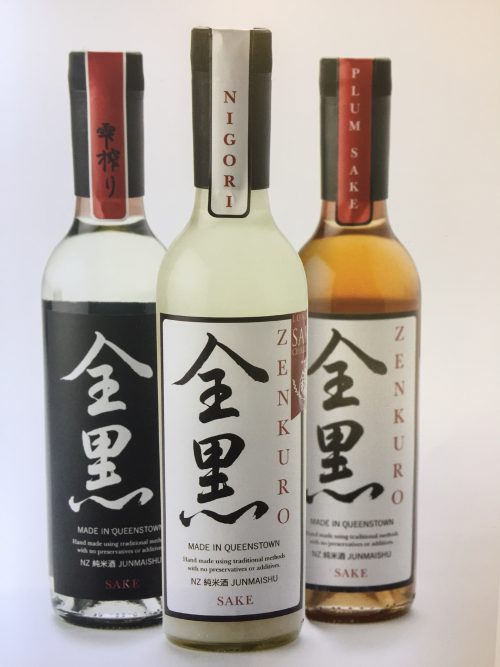
Zenkuro Sake is brewed and processed in small batches continuously throughout the year, with soft, pure local water, with the unified goal of offering a unique, fresh, gentle style of sake that had not been previously available in New Zealand.
“Zenkuro Sake reflects our love and respect for Japanese craft traditions, sake culture, and our pride in NZ’s pure essence and pioneering spirit,” said Joll.
Being New Zealand’s first and only sake brewery, the friends felt a responsibility to introduce sake knowledge and experiences to Kiwis and visitors of New Zealand accurately and interestingly.
“As a head brewer and one of the founders of Zenkuro Sake, I hope to be able to pass on a sustainable business, brand and cultural link to the next generation of brewers and customers.”
Zenkuro sake has a basic range of six different sake styles and a handful of unique sake blends prepared for restaurants and food producers nationwide to match food flavour profiles. The brewery also has unique blends of its Zenkuro Sake on tap at restaurants in Queenstown and Dunedin.
The production of sake creates a by-product called Sake-Kasu (pressed sake lees), which is well-known and widely used in Japan as a superfood in restaurants and at home due to its health-giving vitamins, amino acids, and ferulic acid, which benefits the skin.
Zenkuro Sake supplies its Sake-Kasu to restaurants and home consumers nationwide and has also developed its own Sake-Kasu cosmetics range available online.
Zenkura Sake also uses Manuka wood tools to influence its sake, a kangen water filtering system enabling Joll to control its brewing water's purity and ph level.
“With everything done by hand at our brewery, including bottling and labelling, we can create new styles in small quantities and unique sake offerings for events and special dinners at short notice.”
Each batch press uses two different methods: a drip press and a hard press, using local rocks as weights. This provides Zenkuro Sake with two different flavour and aroma profiles from each batch to be creative with.
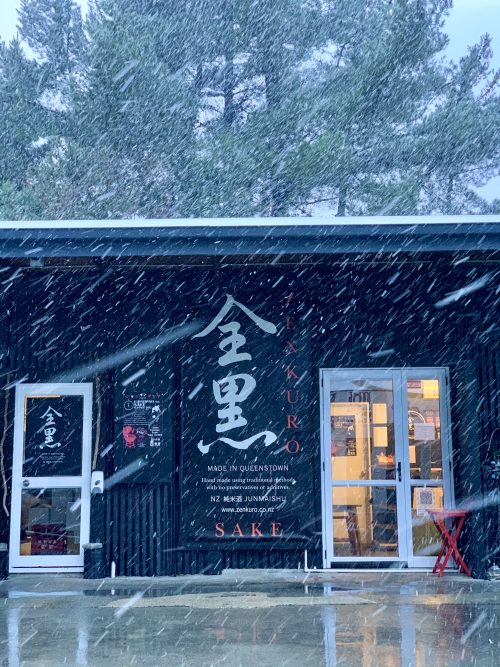
The brand name Zenkuro (―全黒. ZEN全) translates to all, with Kuro 黒 meaning black. The name popped up while Joll and his friends watched the All Blacks game and the build-up to the Rugby World Cup 2015, with the knowledge that the Rugby World Cup 2019 would be held in Japan.
“We were determined to use Japanese calligraphy in our logo, but needed to develop a combination of characters with a special connection to New Zealand.”
Joll added that the production process was extensive but, put simply, the vital starting point for describing sake production was that it was a fermented alcoholic beverage, not distilled, and therefore not a spirit. It is closer to beer or wine, with a significant point of difference being that sugar and alcohol production take place in tandem under a process coined multiple, parallel fermentation.
“This is probably unique to sake brewing. The ingredients are steamed rice, water and yeast, while some of the rice used needs first to be saccharified by converting the starch content of the grain into glucose through a natural process. Once a yeast starter is ready, steamed rice, saccharified rice (koji) and water are added to the fermentation tank in increasing amounts over four days.”
He continued that with all the ingredients in the tank, the mash is slowly fermented for around 30 days at low temperatures. The fermentation is followed by pressing, settling, racking, pasteurising, aging, and blending, which typically includes a slight dilution with pure water and bottling. On average, the entire process typically takes four to six months for each batch.
At Zenkuro Sake’s brewery, the team cares for around 23 batches per year, making it a never-ending process.
Zenkuro Sake has received nine international awards in six years at sake competitions in London, Hong Kong, Bordeaux, and Luxembourg, up against some of Japan’s best-known sake breweries.
In the future, Joll hopes to make sake a mainstream beverage in New Zealand for enjoyment with all styles of cuisine at restaurants and home and for Jolls, his friends, and Zenkuro Sake to share their sake knowledge, experiences, and love for sake culture with Kiwis nationwide.

